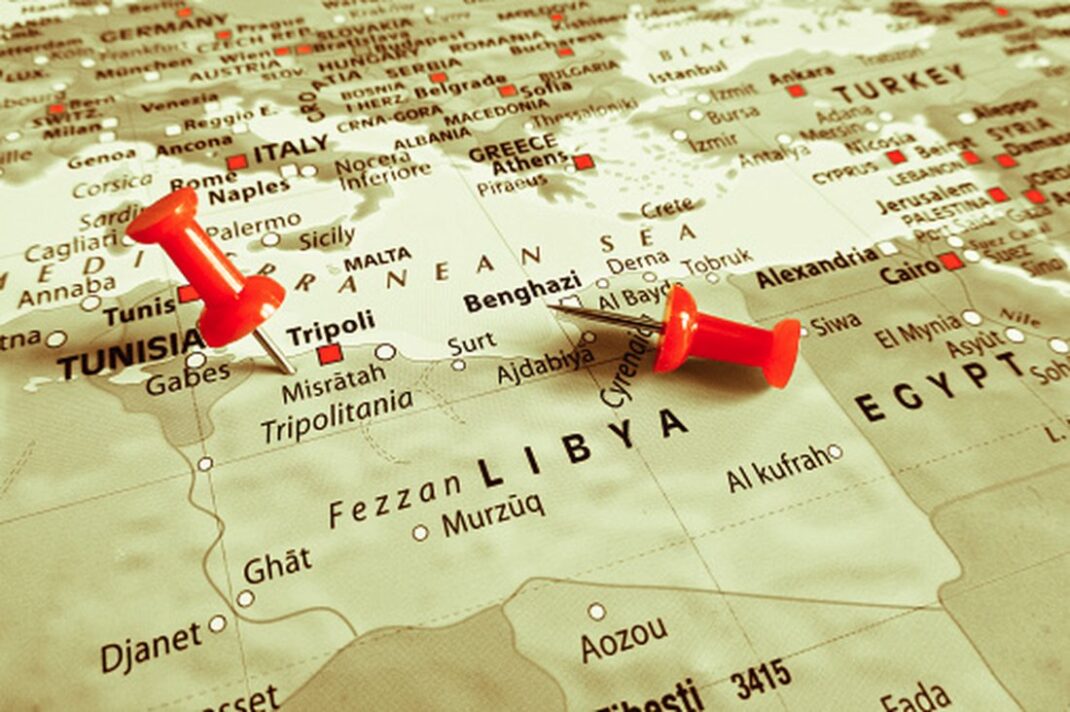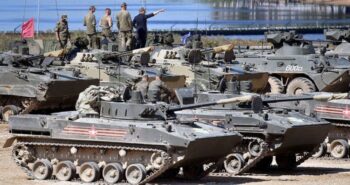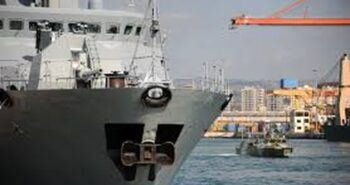By Stefano Marcuzzi

Book Description
This book explores the causes and implications of the Libyan crisis since the anti-Gaddafi uprisings of 2011 from the perspective of the EU and NATO. It asks the question of why those organizations failed to stabilize the country despite the serious challenges posed by the protracted crisis to European and transatlantic stakes in the region.
 This book argues that such failure originated in a twofold problem common to both organizations: their prioritization of legitimacy over strategy, and their path dependence – the insufficient degree of adaptation to meet the different needs of the crisis. Through a critical and integrated analysis of official sources and extensive interviews with EU, NATO, UN, and national government officials and militaries, as well as from NGO personnel, Libyan institutions and civil society, and media, the volume brings the perspective of both state and non-state actors to the fore.
This book argues that such failure originated in a twofold problem common to both organizations: their prioritization of legitimacy over strategy, and their path dependence – the insufficient degree of adaptation to meet the different needs of the crisis. Through a critical and integrated analysis of official sources and extensive interviews with EU, NATO, UN, and national government officials and militaries, as well as from NGO personnel, Libyan institutions and civil society, and media, the volume brings the perspective of both state and non-state actors to the fore.
It reveals how wrong assumptions and centrifugal forces within the EU and NATO hampered initiatives, and how the inability to use hard power judiciously and effectively in an increasingly complex and multifaceted scenario worsened the crisis. This allowed for unprecedented influence of regional and global competitors such as Egypt, the United Arab Emirates (UAE), Turkey and Russia in the richest African country.
This book will be of key interest for scholars and students of Libya and North Africa, NATO, the European Union, security and conflict studies, Middle East studies, migration, terrorism, peacebuilding and, more broadly, international relations.
Introduction
ABSTRACT: Libya needs a renewed commitment by both North Atlantic Treaty Organization (NATO) and the European Union (EU) to deter or punish properly any potential spoiler of the peace dialogue.
The inability of NATO and the EU to use hard power effectively and assertively in Libya had a number of consequences directly affecting EU-NATO interests. The power vacuum in Libya allowed for unprecedented migration flows from the country’s shores in 2014–2016 that took the European continent by surprise.
The core issue of insecurity was a consequence of Libya’s historic internal divisions and power management culture. For NATO, path dependence can be seen as the inability to find a proper strategic formula or toolkit alternative to territorial defense and anti-Russian deterrence to manage Libya’s multi-layered and fast-changing crisis.
Libya produces sweet crude which is badly needed in many refineries in Southern Europe and is key to European energy security.
Part 1: Responsibility to Protect
1. The EU and NATO on the Eve of the Libyan War: Strategy and Institutions
ABSTRACT: This chapter addresses the problem of EU and NATO strategic adaptation to the post-Cold War security environment, their policy making processes, their institutional cultures and internal issues, and their attempts at coordination. It places these within the pre-2011 EU and NATO operations, identifying three main reasons for EU and NATO underperformance in the 2011 Libyan crisis.
2. Bloody Spring: The Libya Conflict of 2011
ABSTRACT: This chapter sets the scene of the 2011 Libyan conflict. It proffers lessons from Libya’s history that were ignored in both EU and NATO circles at the outbreak of the conflict, drawing out the fundamental nature of the Libyan state and of the Libyan uprisings.
3. Intervention: Half-Hearted Hard Power
ABSTRACT: This chapter analyses the Western-led 2011 intervention, looking at why the EU failed to deploy its military coordination umbrella, passing the operational responsibility onto NATO despite the intervention being a European (Anglo-French) initiative. The chapter stresses that the intervention was not a fully-fledged NATO operation, but rather a coalition of the willing with NATO support. This had both operational and political consequences during the campaign and its aftermath.
Part 2: Responsibility to Rebuild
4. The Years of Missed Opportunities: Soft Power to the Test, 2012–2014
ABSTRACT: This chapter focuses on the expectations, plans, and early attempts by the EU and NATO to establish a democratic regime in Libya swiftly after the official end of military operations, mostly through the classic soft power initiatives. It shows how a light footprint engagement and a paroxysmal prioritization of legitimacy and local ownership over strategy ultimately crippled the initiatives of both organizations.
5. Civil War and Proxy War: From Soft to Hard Security Crisis, 2014–2016
ABSTRACT: This chapter analyses EU-NATO failure to adapt to a rapidly changing crisis moving from soft to hard security. It reveals why the EU and NATO continued to pursue a light footprint approach to the challenges in Libya.
6. From State-Building to Containment: Eluding or Deputizing Hard Security Measures, 2017–2018
ABSTRACT: This chapter describes the shift in EU and NATO strategic approach to Libya, inspired by a containment rational. Such weak commitment by both organizations encouraged individual — and more disruptive — actions by their respective member states, leading to critical horizontal incoherence.
7. From a Proxy War to an Internationalized War: The Need for Hard Power, 2019 and Beyond
ABSTRACT: This chapter examines how the Libyan proxy war turned into an internationalized conflict with the involvement of Russia and Turkey. The chapter assesses whether the presence of Turkish and Russian forces and mercenaries was the stimulus to spur stronger EU or NATO action, and the outcome of the 2020 Berlin summit.
Conclusions and Heading Forward
ABSTRACT: This final chapter highlights the fact that EU-NATO failures in Libya were less the product of institutional/constitutional settings — as often understood — and more the consequence of prioritization of legitimacy over strategy and path dependence in both organizations. It also underscores the lesson that, though useful and probably necessary, constitutional modifications will not per se bring about a more efficient EU and NATO role in crisis management, or better EU-NATO coordination.
***
Stefano Marcuzzi is Marie Curie Fellow at University College Dublin, Ireland, Visiting Scholar at Carnegie Europe, Brussels, Belgium and Emerging Challenges Analyst at the NATO Defense College Foundation, Rome, Italy.
___________________





